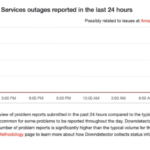Global focus on oil and gas sector methane reduction pledges highlights the need for tangible actions over symbolic gestures. Urgency in addressing climate change emphasizes the importance of substantive commitments. Requiring comprehensive approaches and transformative shifts in operations. Adherence to these pledges is crucial for meeting international climate goals and mitigating the severe consequences of emissions.
The consequences of climate change are apparent, with global average temperatures reaching approximately 1.4°C above pre-industrial levels. The UNEP‘s Emissions Gap Report cautions about a trajectory heading towards 2.5 to 2.9°C this century. Carrying the potential for progressively severe and fatal impacts on both populations and economies.
The onset of climate chaos is marked by global average temperatures rising to approximately 1.4°C above pre-industrial levels. The UNEP’s Emissions Gap Report indicates a projected increase to 2.5 to 2.9°C this century. Such temperatures threaten to escalate the impact, posing severe and lethal consequences for numerous individuals and economies.
To meet the 2°C and 1.5°C climate targets, it is essential to achieve a 28-42% reduction in greenhouse gas emissions by 2030. Prioritizing cuts in methane emissions offers a cost-effective and swift solution. Providing time for developing nations to decarbonize while delivering added benefits. Such as reducing air pollution and preventing crop losses.
READ ALSO: Israel-Palestine Conflict’s Active Influence on the World Fuel Price
The commitment from the oil and gas sector through the Oil and Gas Decarbonization Charter is a positive step. However, ensuring transparency is crucial due to existing low trust levels. While companies express the right intentions, the projected coal, oil, and gas production for 2030 exceeds levels compatible with the 1.5°C target. Convincing themselves and others that they are truly doing everything possible for the climate will require overcoming significant challenges and dispelling doubts.
UNEP collaborates with the Oil and Gas Methane Partnership 2.0. Part of the International Methane Emissions Observatory, to establish a global Monitoring, Reporting, and Verification system for methane. The UNEP Methane Alert and Response System swiftly detects emissions, thanks to new funding from Bloomberg Philanthropies. The oil and gas sector must now make and fulfill stronger commitments, integrating methane action with deep decarbonization. To build global trust and adapt to profitable new business models amid the inevitable low-carbon transition.










